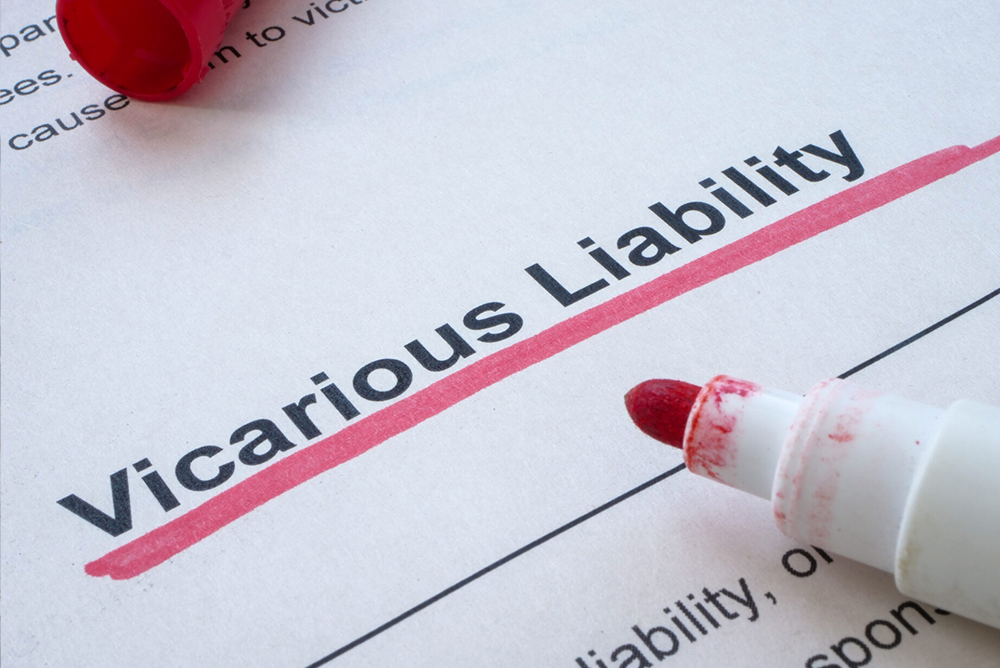Businesses often rely on warm transfer calls as one source of customers. Businesses receiving warm transfer calls often assume that since the transferred calls are initiated by another person or entity, they do not need to be concerned with whether those calls comply with federal and state call restrictions, like the Telephone Consumer Protection Act (TCPA), as those laws primarily regulate outbound calls.
But merely being the recipient of warm transfer calls does not alleviate inbound call recipients of all risk in the event any of those calls are non-compliant. Below we discuss those risks and provide some risk-mitigation tips to consider.
But first, what is a warm transfer call?
What is a Warm Transfer Call?
There are multiple types of warm transfer calls. Here, we are focused on warm transfer calls between separate entities. In those cases, a seller (business) contracts with an independent third-party marketer or lead generator.
The marketer typically utilizes various methods to get consumers to call or text it in response to an online ad or website, or it places outbound sales calls to gauge consumer interest in the products or services it is marketing.
Example in Health Insurance Sales
For example, a lead generator may be marketing health insurance policies sold by third parties, to whom it will transfer those live calls via a warm transfer hand-off. When the lead generator speaks with a consumer who indicates an interest in purchasing health insurance, the lead generator will typically pre-screen the consumer’s interest in certain types of products and then decide which of its insurance sales clients it will transfer that particular call to.
That’s an example of a warm transfer call. The hope, of course, is that after the transfer, the consumer will purchase one of the health insurance policies sold by the seller.
Common Misconception
For these types of warm transfer calls, businesses tend to believe the marketer is solely responsible for ensuring the transferred calls comply with all applicable call laws, rules, and regulations.
That belief makes sense, because the business usually has nothing to do with the origination of the sales call (if that’s how that interaction began), and the marketer independently selects which seller it transfers a call to. Further, if the marketer makes outbound sales calls to consumers, the business likely does not control who the marketer calls, or what the marketer says on its calls.
But because of a doctrine known as “vicarious liability,” it is possible that a business could be held liable when, for example, a marketer transfers calls to it that are not TCPA compliant and the plaintiff can establish the necessary proof to hold the warm transfer call recipient liable under that legal precedent.
Under the doctrine of vicarious liability, discussed further below, a business can be held liable for the actions of its agents through theories of actual authority, apparent authority, or ratification. Despite the independence of the marketers that transfer sales calls to businesses, it is possible a court may find such a marketer to be the business’ agent and find the business vicariously liable for the marketer’s non-compliant calls.
Requirements for Compliant Warm Transfer Calls
In the context of the TCPA, the major concern for businesses that receive warm transfer calls from marketers or lead generators is how they make outbound calls to consumers and the tactics they use to get inbound consumer calls.
If the marketer makes autodialed or prerecorded sales calls to consumers and then transfers those calls to the seller (business), the seller should be sure the marketer has the consumers’ prior express written consent to call them using such technology.
If the marketer makes live-agent, outbound sales calls to consumers and then transfers them to the seller, the seller should be sure the marketer has:
- scrubbed the numbers it calls against the National Do Not Call Registry;
- the called parties’ prior express invitation or permission to call them, or;
- an established business relationship with the called parties.
Again, the business may not be liable for their mistakes in these practices, but it’s always wise to work with vendors who understand and comply with their legal duties under the TCPA and related laws.
Given the deferential standard of review that courts typically apply to reviewing a Plaintiff’s TCPA complaint on a motion to dismiss, extracting oneself from a TCPA lawsuit based on vicarious liability claims at the motion-to-dismiss stage can be challenging, especially when the Plaintiff’s complaint alleges false but assumed details about the business’ relationship with the actual caller/marketer who first called the plaintiff—which is not uncommon.
The Risk of Vicarious Liability
For the type of warm transfer calls discussed here, a business’ biggest risk is being held vicariously liable through a court finding that the marketer was the business’ agent.
There are three types of agency through which one entity can be found to be the agent of another:
Actual Authority
Actual authority is where one party (the principal) authorizes another entity (the agent) to act on its behalf.
If a UPS driver in his brown uniform and brown UPS truck read-ends you in a traffic accident, that’s a classic case of actual authority: yes, the human driver rear-ended you, but your lawyer will sue UPS under a theory of actual authority.
Apparent Authority
Apparent authority is where one entity (the principal) does something that causes a third party to reasonably believe that it authorized another entity (the agent) to act on its behalf.
If a general contractor tells the homeowner that he’s sending “my electrician” to fix an outlet, and that electrician’s work leads to a fire, the home owner’s plaintiff’s attorney will sue the general contractor based on apparent authority, even if the electrician really was an independent subcontractor.
Ratification
While actual authority and apparent authority are both risks in the realm of warm transfer calls, ratification is often the most prevalent risk. Ratification occurs where one entity (the principal, or seller in this discussion) affirms the action(s) of another entity (the agent, or warm-transfer marketer here) even when the principal/seller did not originally authorize that alleged agent’s actions.
In the context of warm transfer calls, the risk of ratification arises when a business becomes aware of a marketer transferring non-TCPA compliant calls to it, and then continues to accept the benefits of those calls knowing that the marketer is not working in a compliant manner on those calls.
Then, despite that knowledge, the business continues to accept warm transfer calls from the marketer. In that scenario, the business is at risk of ratifying the marketer’s illegal conduct and being held vicariously liable if any of the marketer’s future transferred calls are non-TCPA compliant.
How to Protect Your Business From Vicarious Liability
When a business learns that a marketer is transferring non-compliant calls to it, it is important that the business either stops doing business with the marketer or takes steps to ensure the marketer takes effective actions to guarantee it is only transferring compliant calls to the business.
Indemnification Clause
Another action a business can take to protect itself against vicarious liability for a marketer’s non-compliant, transferred calls, is to include an indemnification clause in its contract with the marketer.
Within the indemnification clause, the marketer should agree to defend, indemnify, and hold the business harmless from any claims brought against the business that relate to or arise from calls made by, or texts sent by, the marketer to consumers.
The indemnification clause won’t protect you from being held vicariously liable, but it makes the marketer liable for any liability, expenses, or costs you incur as a result of the marketer’s non-compliant calls. But that clause is only as good as the marketer’s ability to honor it financially.
Key Takeaways
If you are a business that receives warm transfer calls from marketers, remember that if the call originated as a non-compliant call, it remains a non-compliant call when transferred to you.
To protect your business, you should:
- Vet marketers before contracting with them to ensure those marketers have TCPA compliant practices.
- Before entering into a contract with a marketer regarding warm transfer calls, ensure the contract contains a favorable indemnification clause, perhaps backed by appropriate insurance clauses if the marketer’s financial wherewithal seems unclear.
- If you learn a marketer is transferring non-compliant calls to you, either stop doing business with them or take action to ensure they correct the issue and only transfer compliant calls to you.
This article is only offered for informational purposes; it is not legal advice. Please consult a qualified attorney for your specific compliance needs.
Joe Bowser
Joe Bowser is a partner at Roth Jackson. He has been practicing communications and marketing law for two decades. He advises and defends calling and SMS platform providers (like Readymode), carriers/VoIP providers, and heavy users of those services in their wide range of compliance needs. In his spare time, you can find him taking his boys to their sports, getting in a workout of his own, or catching an Arsenal match.








